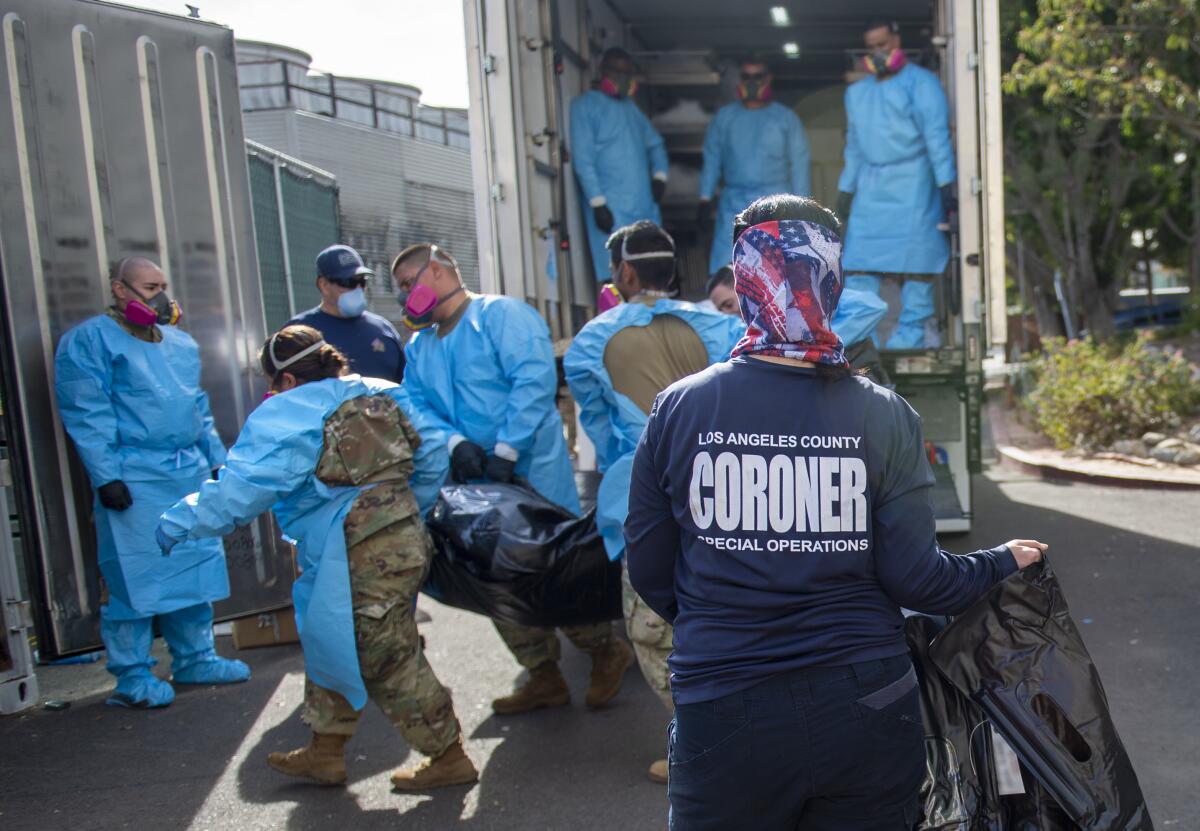Why barring access to autopsy records hurts public safety and accountability

- Share via
My family has been in the journalism business for a half-century. In the 1980s, we purchased Black Voice News in Riverside and grew it into the primary news source for African Americans in San Bernardino County. Producing the paper each week was a family affair. My mom covered stories. My dad used our car to deliver papers throughout the Inland Empire. In the news business, you do a bit of everything, and there is no time for unnecessary obstacles.
Then, as now, the asset we valued most was our access to public records. With this essential journalistic right, we could act as watchdogs on our government, hold public officials accountable, and keep our readers informed about public health and safety.
Today’s intense social justice and political climate has made access more important than ever, particularly in communities of color where trust in our institutions is running low. When we can’t tell readers what’s going on, confidence slips even more.
Yet there is a disturbing trend in California — and elsewhere — to keep public information from reporters. The latest battleground involves autopsy reports. Assemblywoman Jacqui Irwin (D-Thousand Oaks) has introduced a bill — AB 268 — that would severely restrict news media access to public records created by medical examiners and coroners.
The bill, which seeks to ensure the privacy of the deceased and their families at the expense of the public’s right to know, is problematic on several levels.
Coroners’ offices are public agencies. They produce and store important public records, perhaps none more critical recently than those related to the pandemic. The first COVID-19 death in the U.S. was reported in the San Francisco Chronicle after being discovered in an autopsy report.
Just imagine the health ramifications if, as COVID-19 cases soared, the public hadn’t been made aware of the disproportionate impact on Black people, Latinos and the elderly. Media access to autopsy records made it possible for journalists to keep these highly vulnerable populations informed on prevention, detection and treatment.
Coroners’ reports are an effective tool for monitoring police accountability, an issue of critical importance to the Black community. We need to know the truth about causes of death in cases like George Floyd in Minnesota, Breonna Taylor in Kentucky, Michael Brown in Missouri, Freddie Gray in Maryland, and Stephon Clark in California.
Autopsies are a key source for determining how these kinds of deaths occur. If reporters are denied access, the public won’t have facts to hold police, the justice system and suspects, where warranted, accountable for their actions.
Autopsies are also important records for public safety and protection. Communities need to know about homicides and the deadly effects of DUI, opioids and toxic material contamination, to name a few. These are serious events with serious community effects, but without access to autopsies performed in such situations, we are denied records of the stories.
One such instance prompted Assemblywoman Irwin’s bill. At the insistence of victims’ families, the Ventura County Medical Examiner refused to grant media access to autopsies in the Borderline Bar & Grill mass shooting case. Those records, along with other documents withheld by county officials such as dispatch calls, 911 tapes and body camera footage, could help provide a more exact timeline of the shooting.
As a result, the community has been denied its right to know the details of how the tragedy occurred and how it might be prevented in the future. AB 268 would give families of the victims unreasonable authority over access to public records.
We must not relent when government proposes to deny access to public information, no matter how harmless or compassionate it may seem. Indeed, it is critical, especially at this moment in our history, to abide by the California Constitution and protect news media access to all public records, including autopsies.
That’s why I am joining with the California News Publishers Assn. in urging the Assembly’s Public Safety Committee to vote no on AB 268.
Regina Brown Wilson is the executive director of California Black Media. The Los Angeles Times, the Associated Press and the Ventura County Star have sued Ventura County for access to records related to the Borderline mass shooting, including autopsy reports.
More to Read
A cure for the common opinion
Get thought-provoking perspectives with our weekly newsletter.
You may occasionally receive promotional content from the Los Angeles Times.









